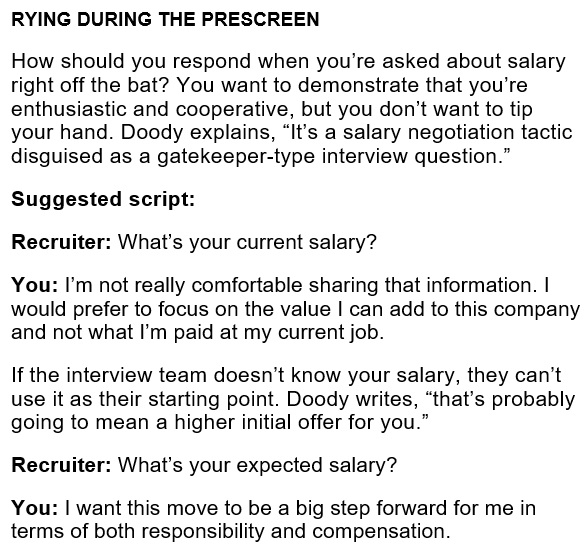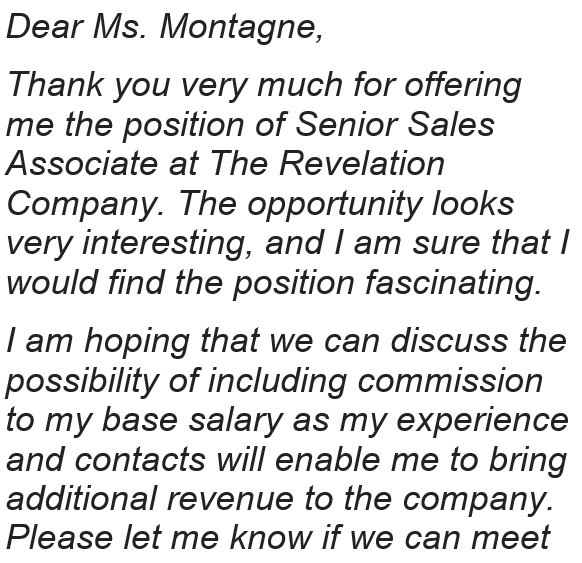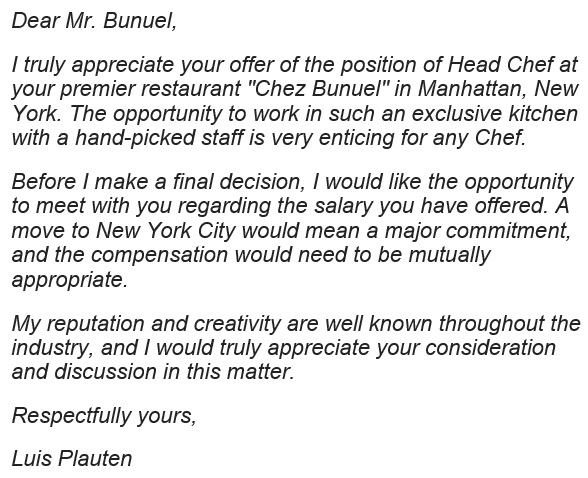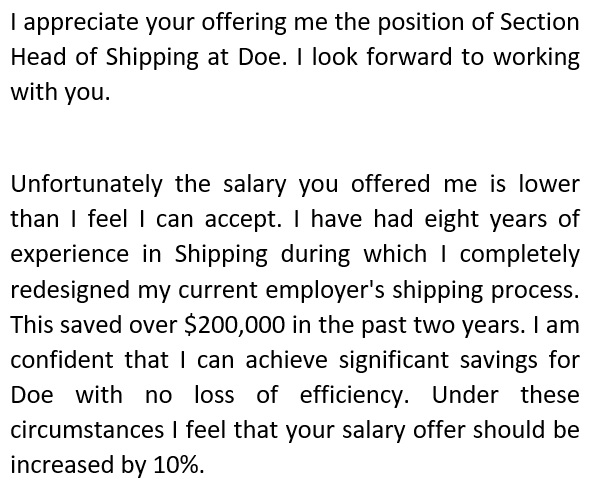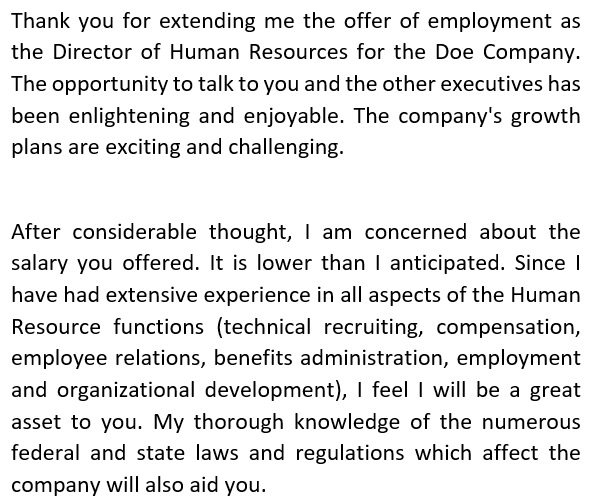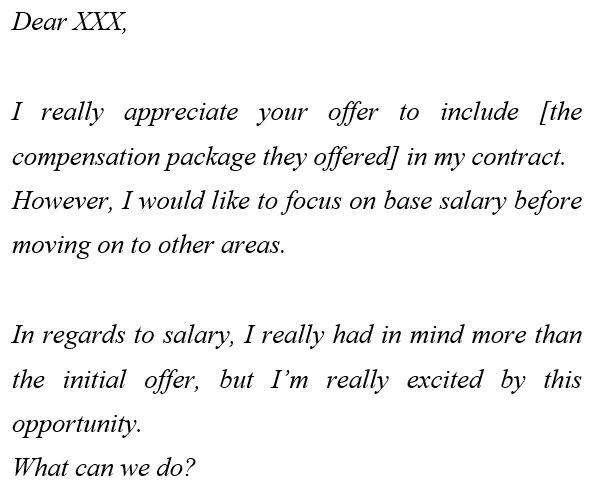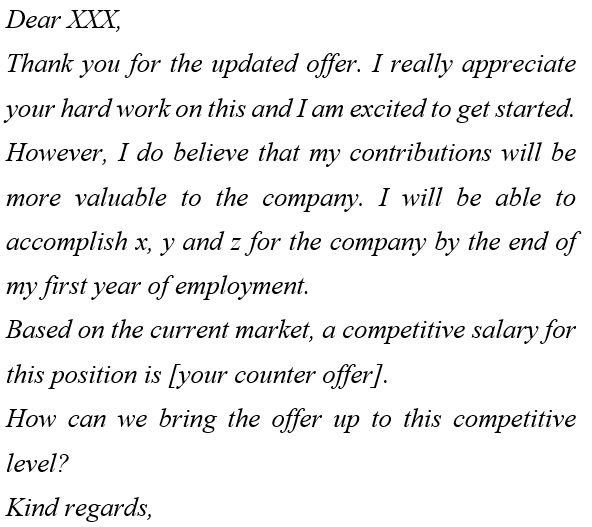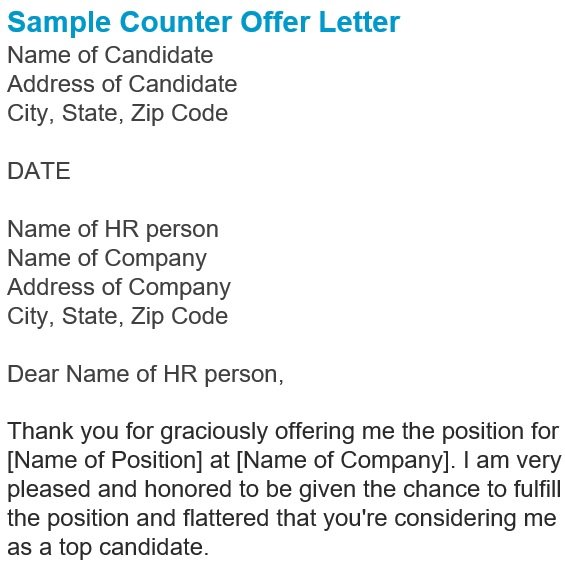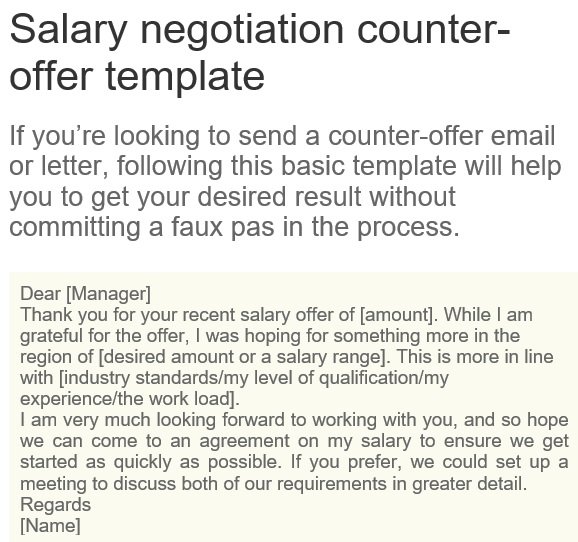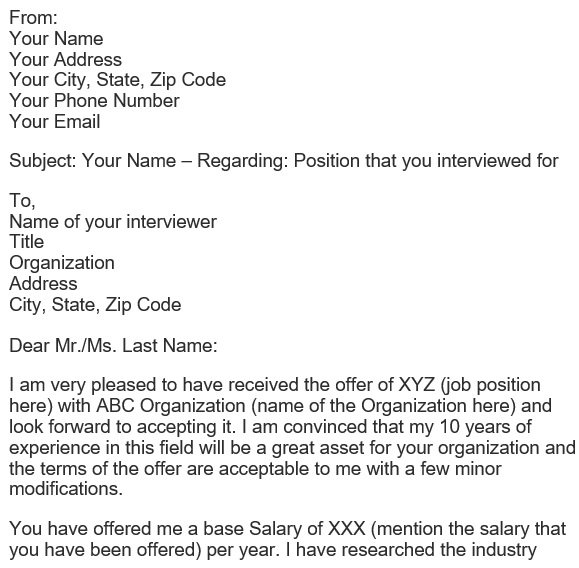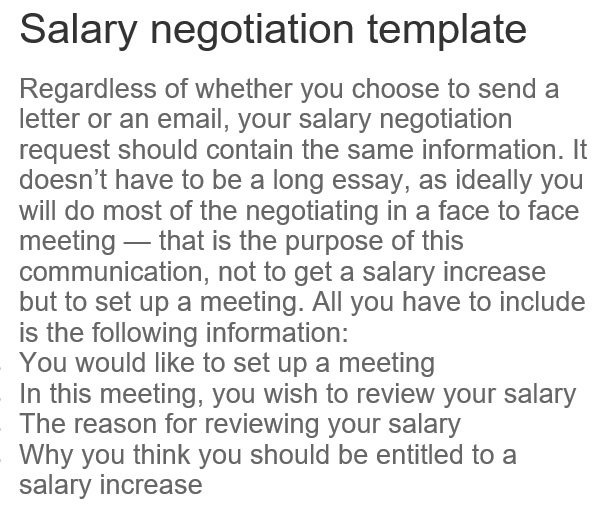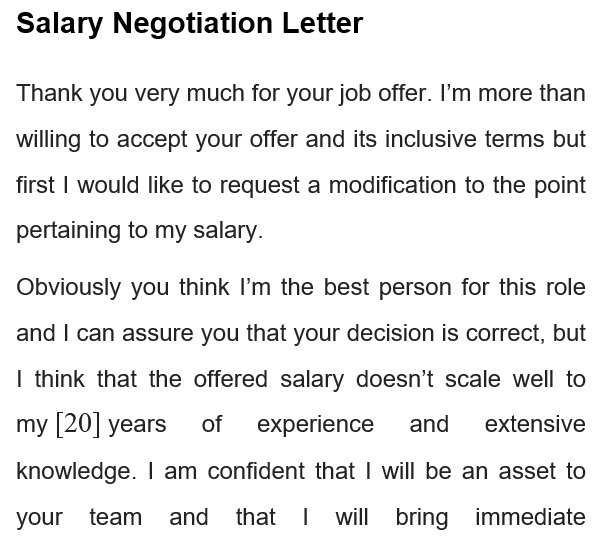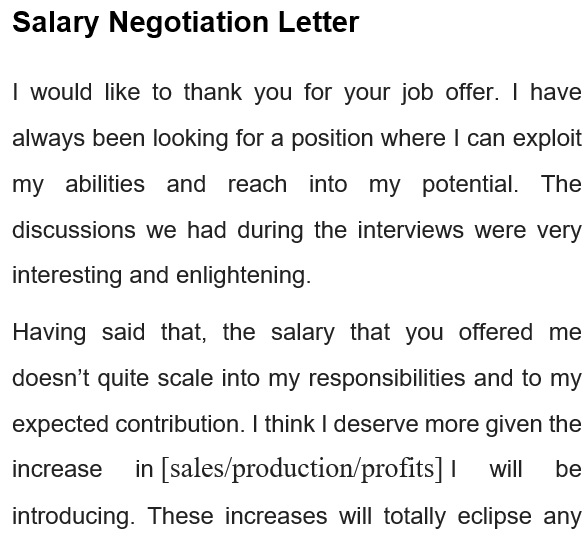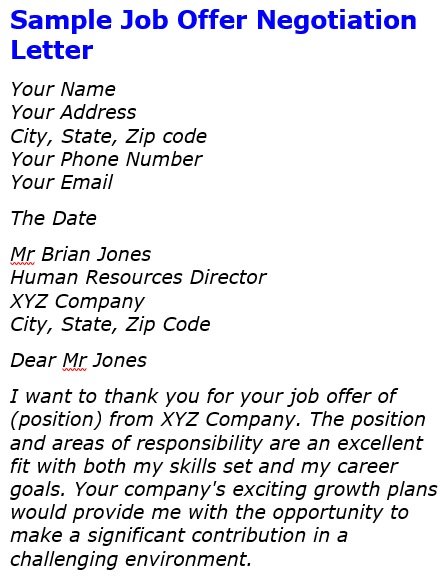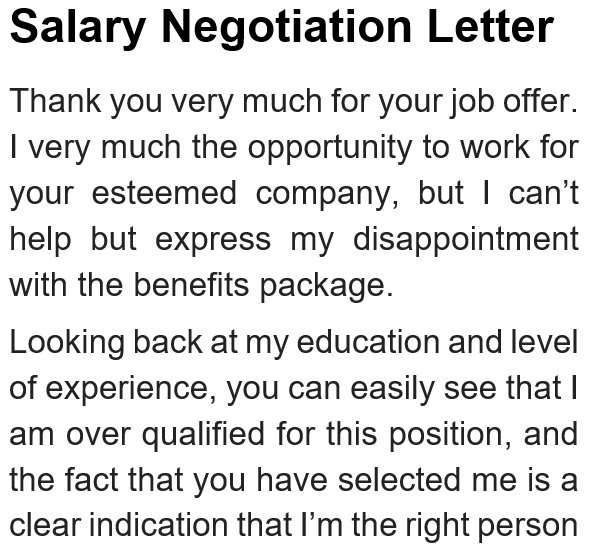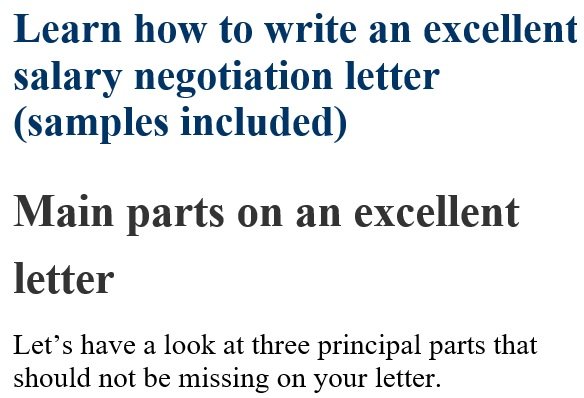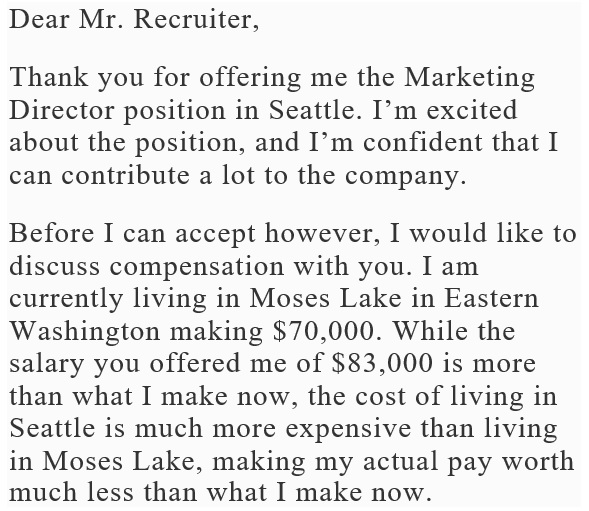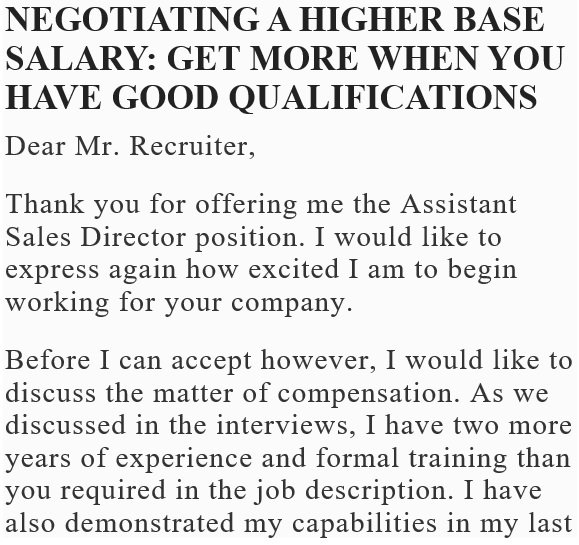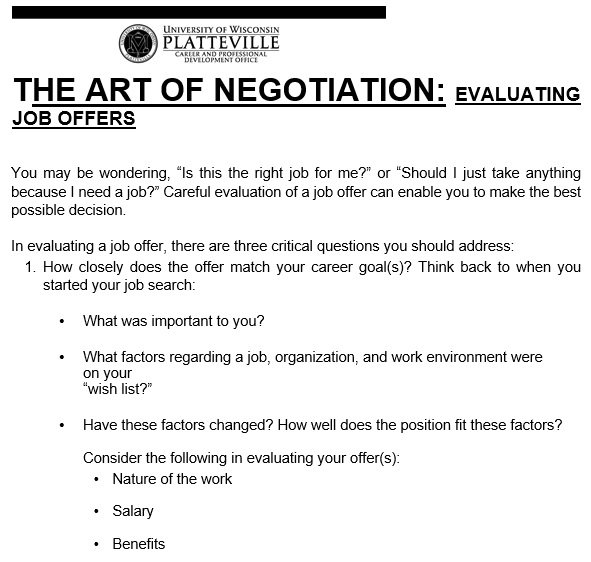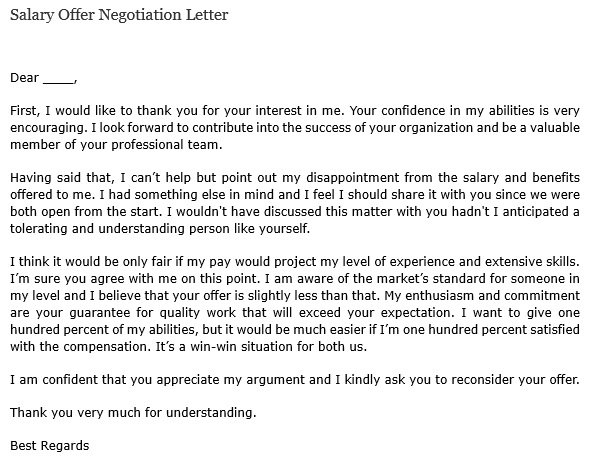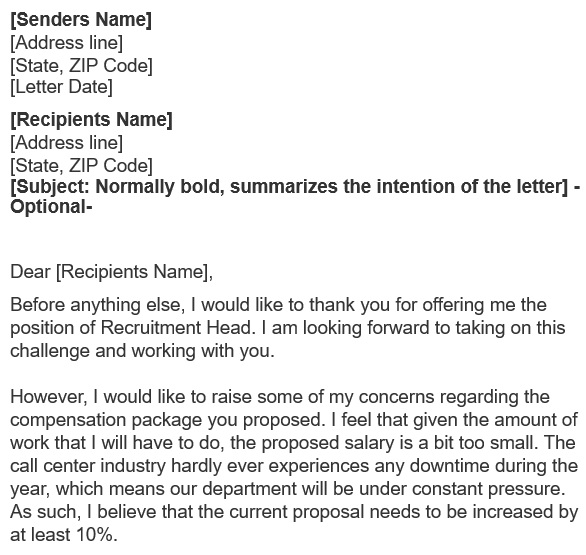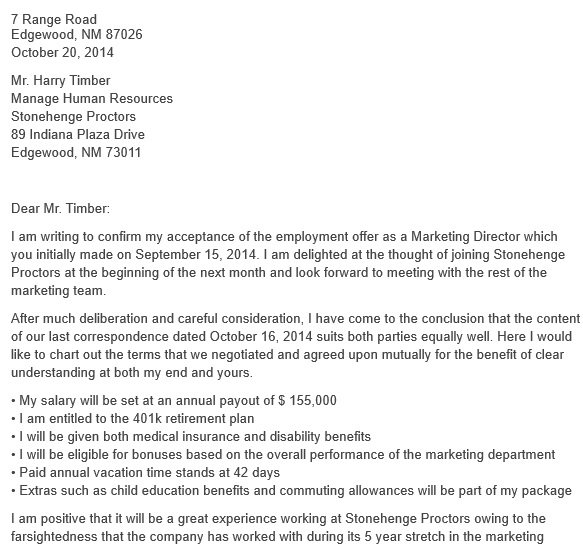You should write a salary negotiation letter if you get a job offer but with the accompanying salary you aren’t satisfied. This is a written response that you as a candidate send to an employer. You can send a counter offer in the letter in case you think you deserve higher compensation for the job offered to you.
Table of Contents
- 1 What is a salary negotiation letter?
- 2 How to negotiate salary after receiving a job offer?
- 2.1 Bear in mind that the offer is not yet final
- 2.2 Indicate genuine interest in the offered position
- 2.3 Provide a salary range instead of a specific amount
- 2.4 Aim for a higher salary but ensure it is within reason
- 2.5 State that why you are asking for a higher salary than the one offered
- 2.6 Pay attention to the ‘we’ instead of ‘I’
- 2.7 By awkward pauses, don’t get intimidated
- 2.8 Identify when it’s time to stop negotiating
- 3 Details to include in a salary negotiation letter:
- 4 Negotiating about a higher starting salary:
- 5 Which factors should you consider while salary negotiations?
- 6 How to write a counteroffer email?
- 7 Reasons for negotiating your salary:
- 8 Conclusion:
What is a salary negotiation letter?
A salary negotiation letter is a formal document written by fresh graduates or by those new to the job market. In this letter, they discuss or negotiate about their compensation including amount pay, income, earnings, commission, other employee benefits, and more.
Firstly, an employer sends the offer to the employee then by writing a salary negotiation letter, employee can accept, decline, or negotiate the details of the offer. There are specific deadlines in which employee has to respond. These deadlines make sure that negotiations only take place on a precise period. In case, no response has been received or employee decline the offer then the employer can contact other potential employees.
How to negotiate salary after receiving a job offer?
You have to start strategizing if you want to negotiate the salary after receiving a job offer. You may become able to ask for a higher salary from an employer by having the right mindset and a few tips. Here are some tips that may assist you in salary negotiation;
Bear in mind that the offer is not yet final
In salary negotiation or in creating a salary negotiation script, this isn’t one of the steps but this is first thing that you have to bear in mind. By considering this, when it’s time for the negotiations, you will have a more positive mindset.
Don’t that by bringing up the topic of salary may stop you from getting what you know you deserve. You know your abilities and know how hard you work. So, at the beginning, if you get a low salary, know that this is not final.
Indicate genuine interest in the offered position
You should also indicate the employer that you’re genuinely interested in the position during negotiating the salary. Otherwise, your employer may think that you are only interested in the money. First, indicate that you’re enthusiastic about the position and then by using positive tone start your negotiation.
Provide a salary range instead of a specific amount
Many people tend to low-ball themselves in order to appear humble while starting the negotiation. Doing this, may make you miss the chance to earn more money. Give a salary range instead of a specific amount in order to avoid doing this.
Aim for a higher salary but ensure it is within reason
Don’t ask a salary range that you know company can’t give. Do some research in case you have no idea of how much you should get for the position. But, you would have a better idea of how high you can aim for if you know what to expect. This is because you’ve held the same position or a lower position in a different company.
State that why you are asking for a higher salary than the one offered
At the beginning, the employers always offer a low amount as they know that all employees want fair compensation. Don’t just pay attention to the money when you are negotiating. Show the employer that you are genuinely interested in the growth of the company. Provide a clear reason why you’re asking of a higher salary.
Pay attention to the ‘we’ instead of ‘I’
Don’t consider a salary negotiation as a battle among you and the employer. You should always keep in mind that you are addressing the hiring manager or recruiter. No matter how the discussion goes, maintain politeness and professionalism. Express some sympathy particularly when the recruiter is indicating hesitation in terms of providing you higher compensation.
By awkward pauses, don’t get intimidated
People usually start feeling uncomfortable and intimidated when there’s an awkward pause. This is particularly true if you’re already feeling tense due to negotiation. But, in the process of communication, you should understand that these awkward pauses occur naturally. The person you are speaking to is only thinking about what you’ve said. They are formulating an appropriate response. In such a situation, just keep quiet and wait for the recruiter to respond.
Identify when it’s time to stop negotiating
Employers expect applicants to give a counter offer and if you haggle all the way down to the final cent, they won’t appreciate it.
Details to include in a salary negotiation letter:
You should include the following details in a salary negotiation letter;
- Your industry and management experiences
- Your level of education
- Your certifications and licenses
- Your professional achievements
- Your professional memberships
Negotiating about a higher starting salary:
These days, email has become more popular but face-to-face conversation is still more effective. So, you should do salary negotiations in person so that you interact with your employer. Also, this way, employer invests more time and effort in you and as a result, your chances of getting better compensation will increase. You have to draft an effective salary negotiation letter as salary negotiations are happening through email nowadays. Here are some tips that you can consider;
When you receive an initial offer, you should start thinking about the offer and how you can improve your leverage rather than feeling too impressed by it. For this, by indicating your experiences show your value to the employer as well as reiterate your interest in joining the company.
As soon as possible respond to the initial offer
When you receive the initial offer, respond to it as soon as possible by using professional language. At this stage, there is no need to talk about numbers. You must inform them how you can participate to the company.
Sending your counter offer
After sending your response to the initial offer, you receive second offer so read it carefully. You have already discussed about the salary so at this time send your counteroffer.
Which factors should you consider while salary negotiations?
Here are some factors that you must consider while negotiating for a pay raise;
Geographic location
It is important to determine the location of your company and the cost of living in the area and make sure you receive sufficient money every month to cover your living expenses.
Industry experience
If you have some years of experience for the job vacancy you are applying for then you may ask for higher pay. It’s a fact that candidate who have no experience in the industry will get less wages as compared to those who have job experience requirements.
Leadership experience
A higher salary can be asked for the job vacancy that require some leadership experience. Also, it is another thing to consider the skill of being a manager when it comes to a job.
Education level
The valuation of the position may get affected by your education and degree level relevant to the job.
Career Level
Obviously, you get a higher salary as you move further in your career specifically if you are moving up within a similar industry.
Skills and certifications
Some employers may require some sort of specialty skills and certifications to become able to fulfill the job. These specialty skills attract higher pay as they require time and training to master. So, you can negotiate for a better paycheck if you have these skills and certifications.
How to write a counteroffer email?
After impressing the employer through the interview and before signing any contracts, send a counter offer letter or a salary negotiation email. These days, companies generally send job offers via email first. The best time to open the discussion about the compensation is giving your reply with a negotiation.
Furthermore, don’t start negotiations right after you get an initial offer from the employer. This may provide the employer the impression that all you’re interested in is the money not the position. They think that position isn’t important for you. Take some time to respond on the initial offer that you receive. Companies generally provide you some time to consider the offer anyway.
However, send a salary negotiation letter via email and for this consider the following tips;
- It’s a good idea to speak in person instead of via an email exchange in case you think that the conversation you’re about to have with the employer will be a difficult one. The reason behind it is that it’s easier to misinterpret written statements. You have no way to describe what you mean when that happens.
- Another benefit of doing salary negotiation via email is that you have more time to compose yourself. Moreover, you can collect your thoughts and carefully plan what to say. Also, when you negotiate with an employer face-to-face, you won’t have to deal with the awkward pauses or situations that you may have.
- You should respond through email if you receive an offer via email. If the employer specifies this, then you must follow it.
- Provide the employer some time to consider the counter offer when you have sent it. you may send a follow-up email and ask for an update in case you didn’t receive a response after a reasonable period of time.
Reasons for negotiating your salary:
Every job seeker or employee should do salary negotiation in order to secure their future. Let us discuss more reasons for doing salary negotiation;
- You aren’t just negotiating numbers while doing salary negotiation, in fact, you are securing your future wages. An increment in your salary while transferring to another job or getting a promotion will depend on the current salary you’re making. You should keep in mind that a higher starting pay is a sign of a higher future paycheck.
Furthermore, your work performance can be negatively affected by a salary that’s less than what you deserve. Definitely, you can dissatisfy from the job and become less-productive by receiving less pay and performing more work. - Asking for an increment in your salary is not as simple as asking for more money. This is because a lot of effort and guts are required to stand up for yourself. You have required important skills to fight for what you deserve diplomatically.
Conclusion:
In conclusion, you should send a salary negotiation letter to the employer when you receive a low salary offer along with a job offer. Choose your words carefully while drafting this letter. Just give a salary range instead of a fixed amount.


